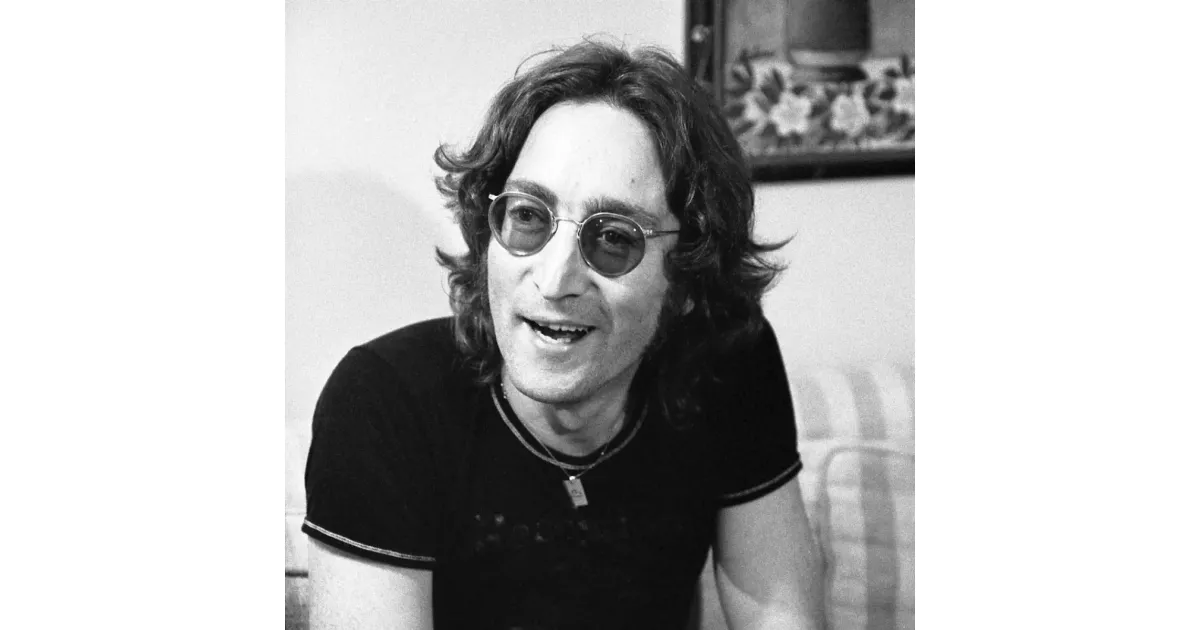How education and upbringing influenced the life of John Lennon. A timeline of key moments.
John Lennon was a highly influential English singer-songwriter, musician, and peace activist. He achieved worldwide recognition as a founder, co-lead vocalist, and rhythm guitarist for the Beatles, one of the most successful and influential bands in music history. Lennon's songwriting collaboration with Paul McCartney is renowned as the most successful musical partnership of all time, producing a vast catalog of iconic and enduring songs. Beyond his musical achievements, Lennon used his platform to advocate for peace and social change, becoming a prominent voice for anti-war movements.
1917: Homage to Marcel Duchamp
In 1968, John Lennon created a ready made black bike (an apparent homage to Marcel Duchamp and his 1917 Bicycle Wheel) for his 'You Are Here' art exhibition.
October 1940: John Lennon's Birth
On October 9, 1940, John Winston Lennon was born at Liverpool Maternity Hospital to Alfred and Julia Lennon.
1940: John Lennon's birth
John Lennon was born in 1940.
February 1944: Father's Absence and Discontinued Support
In February 1944, Alfred Lennon went absent without leave, ceasing the regular pay cheques he had been sending to support John and his mother.
July 1946: Custody Decision
In July 1946, John Lennon's father took him to Blackpool, intending to emigrate to New Zealand. Julia followed, and after an argument, John chose to stay with his mother.
June 1955: Death of Uncle George
On June 5, 1955, John Lennon's uncle George died of a liver haemorrhage at the age of 52, impacting Lennon's family life.
1956: First Guitar
In 1956, John Lennon's mother, Julia, bought him his first guitar, an inexpensive Gallotone Champion acoustic, setting the stage for his musical career.
1957: Lennon meets Cynthia Powell
In 1957, John Lennon met Cynthia Powell, a fellow student, at the Liverpool College of Art. Powell dyed her hair blonde to emulate Brigitte Bardot, whom Lennon admired.
July 1958: Death of Julia Lennon
On July 15, 1958, Julia Lennon, John's mother, was killed by a car, deeply traumatizing the teenage John Lennon and greatly influencing his later creative works.
July 1962: Lennon proposes to Cynthia Powell
In July 1962, upon learning that Cynthia was pregnant, John Lennon proposed marriage, leading to their wedding.
1962: Hanratty Hanged
James Hanratty was hanged in 1962. Later, John Lennon and Yoko Ono would support efforts by the family of James Hanratty to prove his innocence.
April 1963: Julian Lennon's birth
In April 1963, Julian Lennon was born while John Lennon was touring with the Beatles. His birth was kept secret to avoid threatening the Beatles' commercial success.
April 1963: Birth of Julian Lennon
On April 8, 1963, Julian Lennon was born to John Lennon and Cynthia Powell. John Lennon was away on tour with the Beatles at the time and did not see his son until three days later.
June 1963: Lennon attacks Bob Wooler at McCartney's birthday party
In June 1963, at Paul McCartney's twenty-first birthday party, John Lennon physically attacked Cavern Club master of ceremonies Bob Wooler after Wooler made a joke about Lennon's honeymoon with Epstein.
1963: Collaboration with McCartney on "I Want to Hold Your Hand"
In 1963, John Lennon's jamming on a piano with Paul McCartney led to the creation of The Beatles' first US number one hit, "I Want to Hold Your Hand".
1963: Mainstream Success in the UK
The Beatles achieved mainstream success in the UK early in 1963. John Lennon was on tour when his first son, Julian, was born in April.
1964: Acquisition of Mellotron Keyboard
In 1964, John Lennon became one of the first British musicians to acquire a Mellotron keyboard, though it was not heard on a Beatles recording until 1967.
1964: Publication of "In His Own Write"
In 1964, John Lennon's book "In His Own Write" was published, featuring a mix of short stories, poetry, plays, and drawings.
1965: Publication of "A Spaniard in the Works"
In 1965, "A Spaniard in the Works" was published. It formed the basis of the stage play The Lennon Play: In His Own Write, co-adapted by Victor Spinetti and Adrienne Kennedy.
1965: Lennon's "Help!" expresses his feelings
In 1965, John Lennon felt concerned that fans at Beatles concerts couldn't hear the music due to screaming, impacting the band's musicianship. His song "Help!" reflected his feelings. He also felt he was subconsciously seeking change and had put on weight. In March 1965, Lennon and Harrison unknowingly took LSD after a dentist spiked their coffee at a dinner party, leading to a frightening experience.
November 1966: First Meeting with Yoko Ono
On 9 November 1966, John Lennon met Yoko Ono for the first time at the Indica Gallery in London. Ono was preparing her conceptual art exhibit, and Lennon was intrigued by her "Hammer A Nail" piece. Lennon wanted to hammer a nail into the board before the exhibit began, but Ono initially stopped him.
1966: This is Not Here (1966) part of Blue Room Event (1966)
In 1966, Lennon's 'You Are Here' show was conceived as a response to Ono's conceptual art piece 'This is Not Here (1966)' that was part of her Fluxus installation of wall text pieces called 'Blue Room Event (1966)'.
1967: Death of Brian Epstein
Brian Epstein, The Beatles' manager, passed away in 1967, marking a significant loss for the band.
1967: Funding of Ono's "Half-A-Room" Art Exhibition
In 1967, John Lennon anonymously funded and participated in Yoko Ono's art exhibition "Half-A-Room" held at Lisson Gallery.
1967: Use of Mellotron on "Strawberry Fields Forever"
In 1967, the Mellotron keyboard, acquired by John Lennon in 1964, was first heard on a Beatles recording, "Strawberry Fields Forever".
1967: Cynthia Lennon's experience at Bangor
In 1967, when the group traveled by train to Bangor, Wales, for the Maharishi Yogi's Transcendental Meditation seminar, Cynthia Lennon was stopped from boarding by a policeman who did not recognize her.
February 1968: The Beatles travel to India
In February 1968, led by Harrison and Lennon's interest, the Beatles traveled to the Maharishi's ashram in India for further guidance. While there, they composed most of the songs for their double album "The Beatles".
May 1968: Lennon and Ono's Night Recording
In May 1968, while Cynthia Lennon was on holiday, John Lennon invited Yoko Ono to visit his home. They spent the night recording what would become the "Two Virgins" album and, according to Lennon, "made love at dawn".
November 1968: Ono's Miscarriage
In November 1968, a few weeks after John Lennon's divorce from Cynthia Lennon was granted, Yoko Ono miscarried a male child on 21 November 1968.
November 1968: Divorce of John Lennon and Cynthia Powell finalized
In November 1968, the divorce case between John Lennon and Cynthia Powell was settled out of court, with Lennon granting her £100,000, a small annual payment, and custody of Julian.
1968: Opening of "The Lennon Play: In His Own Write"
In 1968, "The Lennon Play: In His Own Write" opened at The Old Vic. John Lennon and Yoko Ono attended the opening night performance, their second public appearance together.
1968: 1968 comic drawing
In 1968, John Lennon drew a comic for the macrobiotic magazine Harmony.
1968: Formation of International Marxist Group
In 1968, the International Marxist Group, a Trotskyist group, was formed in Britain. According to FBI surveillance reports, John Lennon was sympathetic to them.
1968: The White Album photo collage creation
In 1970, Lennon made The Complete Yoko Ono Word Poem Game where he used the portrait photo of himself that was included in the packaging of the 1968 The Beatles LP (aka The White Album) and cut it into 134 small rectangles to be reassembled in any order.
1968: You Are Here Art Exhibition
In the summer of 1968, John Lennon began showing his painting and conceptual art at his You Are Here art exhibition held at Robert Fraser Gallery in London. The show, that was dedicated to Ono, included a six foot in diameter round white monochrome painting called You Are Here (1968).
March 1969: Lennon and Ono's marriage and "Bag One" release
On March 20, 1969, John Lennon and Yoko Ono married and soon released a series of 14 lithographs called "Bag One" depicting scenes from their honeymoon, eight of which were deemed indecent and mostly banned and confiscated.
April 1969: Name Change Ceremony
On 22 April 1969, John Lennon changed his name by deed poll, adding "Ono" as a middle name. The brief ceremony took place on the roof of the Apple Corps building.
September 1969: Lennon leaves the Beatles
On September 20, 1969, John Lennon left the Beatles, but agreed not to inform the media while the group renegotiated their recording contract.
1969: Appearance in Self-Portrait Art Film
In 1969, John Lennon appeared in Yoko Ono's Fluxus art film "Self-Portrait", consisting of a single forty-minute shot of Lennon's penis, premiered at the Institute of Contemporary Arts.
1969: Wedding Album drawings
In 1969, John Lennon drew fine art prints inside the sleeve of his Wedding Album.
1969: Lennon Writes Skit for "Oh! Calcutta!"
In 1969, John Lennon wrote "Four in Hand", a skit based on his teenage experiences, for Kenneth Tynan's play "Oh! Calcutta!"
January 1970: Bag One Lithographs Exhibition
On 15 January 1970, John Lennon's "Bag One" lithographs exhibition opened at Eugene Schuster's London Arts Gallery. The show was raided by police officers 24 hours later, who confiscated 8 of the 14 lithos on the grounds of indecency.
April 1970: McCartney publicises his departure
In April 1970, John Lennon was outraged that McCartney publicized his own departure on releasing his debut solo album.
June 1970: GRAPEFRUIT FLUXBANQUET
From 18 April to 12 June 1970, John Lennon and Yoko Ono presented a series of Fluxus conceptual art events and concerts at Joe Jones's Tone Deaf Music Store called GRAPEFRUIT FLUXBANQUET.
September 1970: Lennon and Ono undergo primal therapy
Between April and September 1970, John Lennon and Yoko Ono underwent primal therapy with Arthur Janov in London and Los Angeles. Primal therapy aims to release emotional pain from early childhood.
December 1970: Lennon's interview with Rolling Stone
In a December 1970 interview with Jann Wenner of Rolling Stone magazine, John Lennon revealed his bitterness towards McCartney.
August 1971: Lennon and Ono move to New York
In August 1971, John Lennon and Yoko Ono moved to New York and embraced US radical left politics.
1971: Lennon Moves to the US
After moving to the US in 1971, John Lennon's relationship with George Harrison began to drift apart.
1971: Creation of "Erection" Experimental Art Film
In 1971, John Lennon made an experimental art film called "Erection", edited on 16 mm film by George Maciunas. The film uses the songs "Airmale" and "You" from Ono's 1971 album "Fly" as its soundtrack.
1971: Lennon's Ties with London Anti-War Activists
In 1971, the final 10 documents in John Lennon's FBI file reported on his ties with London anti-war activists. These documents were later released in December 2006.
February 1972: Nixon Administration's Attempt to Deport Lennon
In February 1972, Republican Senator Strom Thurmond suggested that the Nixon administration should deport John Lennon as a "strategic counter-measure" against his anti-war activities which Nixon believed could cost him his reelection.
August 1972: Benefit concerts at Madison Square Garden
On August 30, 1972, John Lennon and Yoko Ono gave two benefit concerts with Elephant's Memory and guests in New York in aid of patients at the Willowbrook State School mental facility at Madison Square Garden, which were his last full-length concert appearances.
1972: Lennon stood up to Nixon
In 1972, John Lennon stood up to US President Nixon.
March 1973: Lennon Ordered to Leave the US
On 23 March 1973, John Lennon was ordered to leave the US within 60 days, while Yoko Ono was granted permanent residence.
April 1973: Formation of Nutopia
On 1 April 1973, John Lennon and Yoko Ono held a press conference at the New York City Bar Association, announcing the formation of Nutopia, described as a place with "no land, no boundaries, no passports, only people," and requesting political asylum in the US.
November 1973: Release of Mind Games and contributing to Ringo album
In November 1973, John Lennon and Yoko Ono decided to separate, and Lennon released "Mind Games", credited to the "Plastic U.F.Ono Band". Lennon also contributed "I'm the Greatest" to Starr's album Ringo.
1973: Move to The Dakota
In 1973, John Lennon and Yoko Ono relocated to the Dakota building overlooking Central Park in New York City for better security.
1973: Julian visits John in Los Angeles
In 1973, Julian and his mother visited John Lennon in Los Angeles, where they went to Disneyland. Julian started to see his father regularly, and Lennon gave him a drumming part on a Walls and Bridges track.
1973: Beginning of the "Lost Weekend"
In 1973, Yoko Ono suggested that May Pang begin a physical relationship with John Lennon, leading to an 18-month period Lennon later called his "lost weekend."
December 1974: Harrison's Plea to Ford
In December 1974, George Harrison visited the White House and asked President Gerald Ford to intercede in John Lennon's deportation case.
1974: Alcohol-fueled incidents and producing Nilsson's album
In early 1974, John Lennon was drinking heavily. In March 1974, two incidents occurred at The Troubadour club: Lennon stuck an unused menstrual pad on his forehead and scuffled with a waitress, and Lennon and Nilsson were ejected from the same club after heckling the Smothers Brothers. Lennon decided to produce Nilsson's album Pussy Cats. In April 1974, Lennon had produced the Mick Jagger song "Too Many Cooks (Spoil the Soup)".
February 1975: Reunion with Ono
In February 1975, John Lennon agreed to meet Yoko Ono, who claimed to have found a cure for smoking. After the meeting, Lennon did not return home and later told Pang that his separation from Ono was over, although Ono would allow him to continue seeing Pang as his mistress.
October 1975: Birth of Sean Ono Lennon
On 9 October 1975, John Lennon's 35th birthday, Sean Ono Lennon was born. John agreed to become a househusband, which he agreed to do.
1975: Career Break
From 1975 until shortly before his death, John Lennon took a career break and was content to sit back as long as Paul McCartney was producing what Lennon saw as mediocre material.
1975: Deportation Order Overturned
In 1975, the deportation order against John Lennon was overturned.
1976: Lennon granted permanent residency in the U.S.
John Lennon was embroiled in a continuing legal battle with the immigration authorities, and he was denied permanent residency in the US, but in 1976 this issue was finally resolved and he was granted the residency.
January 1977: Lennon Attends Inaugural Ball
In January 1977, John Lennon and Yoko Ono attended the Inaugural Ball of President Jimmy Carter.
September 1980: Lennon's Comments About His Family
In September 1980, John Lennon made comments about his family and his rebellious nature, reflecting on his upbringing and personal identity.
December 1980: Support for Sanitation Workers
On 5 December 1980, John Lennon's last act of political activism was a statement in support of the striking minority sanitation workers in San Francisco. He and Ono planned to join the workers' protest on 14 December.
1980: Lennon's Recollection of Meeting Yoko Ono
In 1980, John Lennon recalled his first meeting with Yoko Ono in November 1966. According to Lennon, Ono had not heard of the Beatles at the time, and he offered her an "imaginary five shillings" to hammer an imaginary nail into her art piece.
1992: Publication of "Ai: Japan Through John Lennon's Eyes: A Personal Sketchbook"
In 1992, "Ai: Japan Through John Lennon's Eyes: A Personal Sketchbook", featuring Lennon's illustrations of Japanese words, was published.
1999: Publication of "Real Love: The Drawings for Sean"
In 1999, "Real Love: The Drawings for Sean" was published, featuring John Lennon's drawings for his son, Sean.
2000: Publication of The Beatles Anthology
In 2000, "The Beatles Anthology" was published. It presented examples of John Lennon's writings and drawings.
2005: Powell's memoir released
In 2005, Cynthia Powell released her memoir John, recalling incidents of Lennon's possessiveness and anger during their relationship. She recounted an instance where Lennon struck her after seeing her dance with another man.
Mentioned in this timeline
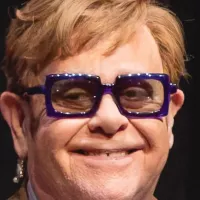
Sir Elton John is a highly successful British singer songwriter...

Bill Clinton served as the nd U S President from...
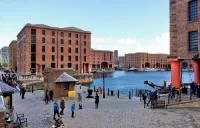
Liverpool is a port city and metropolitan borough located in...

The White House located at Pennsylvania Avenue NW in Washington...
Nigeria is a West African nation the most populous in...
California is a U S state on the Pacific Coast...
Trending
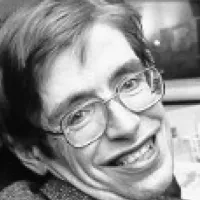
56 minutes ago Stephen Hawking's Reputation Tarnished: Epstein Files Photo Goes Viral, Sparks Controversy
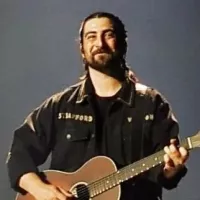
56 minutes ago Noah Kahan's 'The Great Divide' Reaches Number One & Enters A New Era
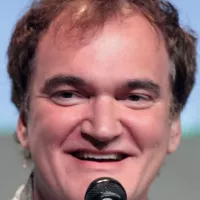
57 minutes ago Tarantino's Cliff Booth Spinoff Teased with Fincher, Pitt's Netflix Movie Revealed.
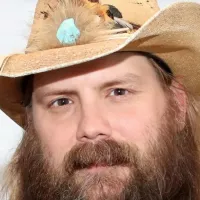
57 minutes ago Chris Stapleton Dampens Hopes: No New Music Imminent, Retirement Speculation Swirls Anew
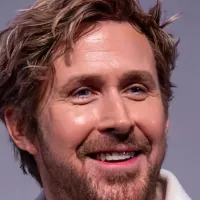
2 hours ago Ryan Gosling finds right franchise fit with Star Wars: Starfighter after feeling unconvinced previously.
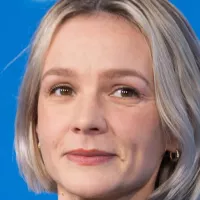
2 hours ago Carey Mulligan on Narnia, Prada, and a Regretted Role Audition.
Popular

Jesse Jackson is an American civil rights activist politician and...

XXXTentacion born Jahseh Dwayne Ricardo Onfroy was a controversial yet...

Hillary Diane Rodham Clinton is a prominent American politician lawyer...

Michael Joseph Jackson the King of Pop was a highly...

Kashyap Pramod Patel is an American lawyer who became the...

Barack Obama the th U S President - was the...
